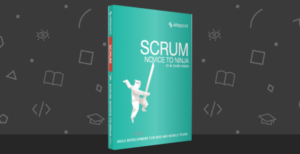This article on advanced OOP for WordPress was originally published by Torque Magazine, and is reproduced here with permission.
I’ve written a lot about object-oriented PHP and the WordPress REST API for Torque over the past few years. I’ve also touched on using Composer for dependency management and to provide an autoloader, as well as covered unit testing. The basic message of everything I’ve written is that by applying the established best practices of software development to how we develop for WordPress, we can create better plugins.
This is the first of a series of articles that will pull together these concepts in a practical, functional example. I’ll be walking through creating a WordPress plugin to modify the capabilities of WordPress REST API endpoints so they can be better optimized for search. The plugin is available on GitHub. You may want to browse the commit log to see how I put it together.
In this series, I’ll cover structuring plugins and classes using modern object-oriented PHP and not only how to make it testable, but also how to write automated tests for it. I will cover the difference between unit tests, integration tests, and acceptance tests and show you how to write and automate running each type. This article begins the series by showing how to use filters to modify the WordPress REST API using an object-oriented approach.
Improving WordPress Search Using the REST API
Plugins like SearchWP or Relevansi, or integrations with ElasticSearch — a technology that uses a totally different stack than WordPress — using Jetpack or ElasticPress, are often used to improve WordPress search. These types of plugins provide better search results and often pair well with faceted-search interface, which is great for eCommerce apps.
Search via the WordPress REST API inherits all of these same problems and the same solution. In this post, I’m going to start by looking at how search works by default, and what the limitations are. Then we’ll look at how to modify the search using two different methods and integrate with SearchWP.
WordPress’s built-in search capabilities often need to be improved using outside services. While this article is about an object-oriented approach to modifying how WordPress REST API routes for posts work, the practical example will be improving search.
When WordPress is used as the back end for a decoupled front end such as a native mobile app or web app, probably built using Vue or React or Angular, having quality search via the REST API is important. The code this article covers will help you if your app’s users need to find the right product variation or search content by a complex algorithm based on multiple taxonomies, and you’re writing custom code, not just installing a plugin.
Searching Posts with the WordPress REST API
If you wanted to search for all posts that were of the post type “product” on a site, using the search terms “Taco Shirts” you would make a request to the /wp/v2/product?s=Taco+Shirt endpoint. If you wanted to improve the quality of the results, the solutions I listed above would help.
As we discussed above, WP_Query, what the post endpoints of the WordPress REST API use, is not a great tool for search. More specifically, WP_Query, probably due to its dependence on MySQL, is inferior to specialized search tools that tend to be built using NoSQL databases.
First, let’s look at how we can bypass WP_Query’s interactions with WordPress’s database if a REST API request is being made.
This is the strategy many search plugins take to substitute the results of their own search systems, for what WP_Query would have generated by default. The search system may use the same database. It may also connect to some other database, possibly via an API request, for example to an ElasticSearch or Apache Solr server.
If you look in WordPress core, you’ll find the filter “posts_pre_query” runs right before WP_Query queries the database, but after the SQL query has been prepared. This filter returns null by default. If that value is null, WordPress continues with its default behavior: querying the WordPress database and returning the results as a simple array of WP_Post objects.
On the other hand, if the return value of this filter is an array — hopefully containing WP_Post objects — then WordPress’s default behavior is not used.
Let’s look at how we can use posts_pre_query to return a mock WP_Post. This strategy is very useful for testing, but a more complex version of the same pattern can be used to integrate a separate database with your WordPress site:
/**
* Replace all WP_Query results with mock posts
*/
add_filter('posts_pre_query',
function ($postsOrNull, \WP_Query $query) {
//Don't run if posts are already sent
if (is_null($postsOrNull)) {
//Create 4 mock posts with different titles
$mockPosts = [];
for ($i = 0; $i <= 3; $i++) {
$mockPosts[$i] = (new \WP_Post((new \stdClass()))); //Fake post for demonstration, could be any WP_Post
$mockPosts[$i]->post_title = "Mock Post $i"; //Fake title will be different for each post, useful for testing.
$mockPosts[$i]->filter = "raw"; //Bypass sanitzation in get_post, to prevent our mock data from being sanitized out.
}
//Return a mock array of mock posts
return $mockPosts;
}
//Always return something, even if its unchanged
return $postsOrNull;
},
//Default priority, 2 arguments
10, 2
);
In this example, we’re using mock data, but we could be using SearchWP’s query class, or anything else. One other thing to keep in mind about this code is it will run on any WP_Query, not just a WP_Query object created by the WordPress REST API. Let’s modify that so we don’t use the filter unless it is a WordPress REST API request by adding conditional logic:
<?php
/**
* Replace all WP_Query results with mock posts, for WordPress REST API requests
*/
add_filter('posts_pre_query',
function ($postsOrNull, \WP_Query $query) {
//Only run during WordPress REST API requests
if (defined('REST_REQUEST') && REST_REQUEST) {
//Don't run if posts are already sent
if (is_null($postsOrNull)) {
//Create 4 mock posts with different titles
$mockPosts = [];
for ($i = 0; $i <= 3; $i++) {
$mockPosts[$i] = (new \WP_Post((new \stdClass()))); //Fake post for demonstration, could be any WP_Post
$mockPosts[$i]->post_title = "Mock Post $i"; //Fake title will be different for each post, useful for testing.
$mockPosts[$i]->filter = "raw"; //Bypass sanitzation in get_post, to prevent our mock data from being sanitized out.
}
//Return a mock array of mock posts
return $mockPosts;
}
}
//Always return something, even if its unchanged
return $postsOrNull;
},
//Default priority, 2 arguments
10, 2
);
Modifying WordPress REST API Endpoints Arguments
We just looked at how to change how the search results are generated for WordPress REST API requests. That allows us to optimize our queries for better search, but it is likely to expose a need for a different schema for the endpoints.
For example, what if you wanted to allow the search on your products endpoint to optionally allow additional post type to be included in the search. I covered a different approach to the same problem last year.
Cross-Cutting Concerns
We are about to look at how to modify the allowed endpoint arguments as well as how they are used to create WP_Query arguments. That’s two separate concerns, and the single responsibility principle says we need one class for each concern. But both classes will have shared concerns.
For example, if we want to allow querying by different post types, we need to know what are the public post types, and what their slugs and rest_base arguments are. This is all information we can get from the function get_post_types.
The output of that function is not exactly what we need. So let’s design a class to format the data according to the needs I just listed and give us helper methods to access it.
Think of it as one common shape for all of the post type data we need in a useable container:
<?php
/**
* Class PreparedPostTypes
*
* Prepares post types in the format we need for the UsesPreparedPostTypes trait
* @package ExamplePlugin
*/
class PreparedPostTypes
{
/**
* Prepared post types
*
* @var array
*/
protected $postTypes;
/**
* PreparedPostTypes constructor.
* @param array $postTypes Array of post type objects `get_post_types([], 'objects')`
*/
public function __construct(array $postTypes)
{
$this->setPostTypes($postTypes);
}
/**
* Get an array of "rest_base" values for all public post types
*
* @return array
*/
public function getPostTypeRestBases(): array
{
return !empty($this->postTypes) ? array_keys($this->postTypes) : [];
}
/**
* Prepare the post types
*
* @param array $postTypes
*/
protected function setPostTypes(array $postTypes)
{
$this->postTypes = [];
/** @var \WP_Post_Type $postType */
foreach ($postTypes as $postType) {
if ($postType->show_in_rest) {
$this->postTypes[$postType->rest_base] = $postType->name;
}
}
}
/**
* Convert REST API base to post type slug
*
* @param string $restBase
* @return string|null
*/
public function restBaseToSlug(string $restBase)
{
if (in_array($restBase, $this->getPostTypeRestBases())) {
return $this->postTypes[$restBase];
}
return null;
}
}
Notice that we didn’t call get_post_types() in the class, instead, we used it as a dependency, injected through the constructor. As a result, this class can be tested without loading WordPress.
This is why I would describe this class as “unit testable”. It relies on no other APIs and we are not worried about side effects. We can test it as one single, isolated unit. Separating concerns and isolating functionality into small parts makes the code maintainable, once we have unit test coverage. I’ll look at how to test this kind of class in my next post.
Keep in mind that this class does rely on WP_Post_Type. My unit tests will not have that class defined, as only integration tests will have WordPress or any other external dependency available. That class is only used to represent data, not to perform any operations. We can, therefore, say its use creates no side effects. As a result, I am comfortable using a mock in place of the real WP_Post_Type in the unit tests.
Speaking of dependency injection, the classes that require objects of this new class, we want to follow the same pattern. Instead of instantiating PreparedPostTypes inside of the classes that need them, we will pass in an instance. This means the classes consuming PreparedPostTypes and PreparedPostType remain isolated and can be tested separately.
It could also lead to code reuse as we have to make that dependency injection possible and have a property for that object. We could use cut and paste, or we could use a PHP Trait, which is a fancy more scalable way to copy methods and properties between classes.
Here is a Trait that establishes a pattern for how we inject the PreparedPostTypes object into other classes
<?php
/**
* Trait UsesPreparedPostTypes
* @package ExamplePlugin
*/
trait UsesPreparedPostTypes
{
/**
* Prepared post types
*
* @var PreparedPostTypes
*/
protected $preparedPostTypes;
/**
* UsesPreparedPostTypes constructor.
* @param PreparedPostTypes $preparedPostTypes
*/
public function __construct(PreparedPostTypes $preparedPostTypes)
{
$this->preparedPostTypes = $preparedPostTypes;
}
}
Our other concern is we need to know some things about a post type in multiple places. For example the post type’s slug. This is a different flavor of a cross-cutting concern than the previous one. The last problem we solved involved dynamic data. Now we just need a single place to change a string or two we use in multiple places.
A class that has class constants solves this for us simply:
<?php
/**
* Class PostType
*
* Post type whose POST wp/v2/<post-type-rest_base> we are hijacking
*
*/
class PostType
{
/**
* Post type slug
*
* @TODO Change this to your post type's slug
*/
const SLUG = 'post';
/**
* Post type rest_base
*
* @TODO Change this to your post type's rest_base
*/
const RESTBASE = 'posts';
}
Now we can keep these strings consistent throughout our code. This may seem like an unnecessary step. But my example code works for the posts post type. If you want to change what post type is used this class needs to change and nothing else needs to change. This is following Tom McFarlin’s preferred definition of the single responsibility principle when he writes, “A class should have only one reason to change.”
Modifying REST API Endpoint Schemas
Now we need to modify the schema of a post type’s endpoints. By doing so, WordPress will communicate to REST API endpoints that the post_type argument is allowed, and when requests are parsed, the new endpoint argument is allowed.
Here is our class to add the post_type attribute. Note that it uses the trait UsesPreparedPostTypes we just discussed:
<?php
/**
* Class ModifySchema
*
* Modifies the REST API route schema so it has an argument "post_type"
*
*
* @package ExamplePlugin
*/
class ModifySchema
{
use UsesPreparedPostTypes;
/**
* The name of the extra argument we are adding to post type routes
*/
const ARGNAME = 'post_type';
/**
* Add post_type to schema
*
* @uses ""rest_{$postType}_collection_params" action
*
* @param array $query_params JSON Schema-formatted collection parameters.
* @param \WP_Post_Type $post_type Post type object.
*
* @return array
*/
public function filterSchema($query_params, $post_type)
{
if ($this->shouldFilter($post_type)) {
$query_params[self::ARGNAME] = [
[
'default' => PostType::RESTBASE,
'description' => __('Post type(s) for search query'),
'type' => 'array',
//Limit to public post types and allow query by rest base
'items' =>
[
'enum' => $this->preparedPostTypes->getPostTypeRestBases(),
'type' => 'string',
],
]
];
}
return $query_params;
}
/**
* Check if this post type's schema should be filtered
*
* @param \WP_Post_Type $WP_Post_Type
* @return bool
*/
public function shouldFilter(\WP_Post_Type $WP_Post_Type): bool
{
return PostType::SLUG === $WP_Post_Type->name;
}
}
In the setting for this attribute, we tell WordPress that this attribute is an array attribute and we specify allowed values using the “enum” index of the array.
In “enum” we enumerate the allowed values. In this case, the PreparedPostTypes class provides that array of allowed values since this is a previously solved, cross-cutting concern.
Note this class isn’t coupled to any post type or even this specific use case. We’ll cover how to make this work with our actual requirement. Decoupling this class from the WordPress plugins API makes it reusable and unit testable. We do need to test that interaction with WordPress, but we would cover that in an integration test. I will show you how to do that in a future post.
We will return shortly to what hooks to use to make this class work for a specific post type.
Modifying REST API WP_Query Arguments
The previous section showed how to make a new endpoint attribute post_type available. That doesn’t actually change the WP_Query arguments the WordPress REST API generates. We have everything we need except one last filter.
Post type is one WP_Query argument that core specifically disallows changing via a REST API request. We have a dynamically named filter — rest_{$post_type}_query — that can override any WP_Query arguments.
Here is our class that injects our post_type args, which previously were not allowed:
<?php
/**
* Class ModifyQuery
*
* Modify WP_Query Args
*
* @package ExamplePlugin
*/
class ModifyQueryArgs
{
use UsesPreparedPostTypes;
/**
* Filter query args if needed
*
* @param array $args Key value array of query var to query value.
* @param \WP_REST_Request $request The request used.
*
* @return array
*/
public function filterQueryArgs($args, $request)
{
if ($this->shouldFilter($request)) {
add_filter('posts_pre_query', [FilterWPQuery::class, 'posts_pre_query'], 10, 2);
$args['post_type'] = $this->restBasesToPostTypeSlugs($request[ModifySchema::ARGNAME]);
}
return $args;
}
/**
* Check if we should filter request args
*
* @param \WP_REST_Request $request
* @return bool
*/
public function shouldFilter(\WP_REST_Request $request): bool
{
$attributes = $request->get_attributes();
if (isset($attributes['args'][ModifySchema::ARGNAME])) {
if ($request->get_param(ModifySchema::ARGNAME)) {
return true;
}
}
return false;
}
/**
* Convert an array of rest bases to post type slugs
*
* @param array $postTypes
* @return array
*/
public function restBasesToPostTypeSlugs(array $postTypes): array
{
$postTypeSlugs = [];
foreach ($postTypes as $postTypeRestBase) {
if ($this->preparedPostTypes->restBaseToSlug($postTypeRestBase)) {
$postTypeSlugs[] = $this->preparedPostTypes->restBaseToSlug($postTypeRestBase);
}
}
return $postTypeSlugs;
}
}
Most of this is just validating if we should make the change and then using the get_param method of WP_Rest_Request to get the value from the request. Most of it is automagical because we modify the schema to match first.
Modifying The WP_Query Object For The WordPress REST API Request
I already showed how to do this in the first part of this post. Here is a class that implements the same pattern:
<?php
/**
* Class FilterWPQuery
*
* Changes WP_Query object
*
* @package ExamplePlugin
*/
class FilterWPQuery
{
/**
* Demonstrates how to use a different way to set the posts that WP_Query returns
* @uses "posts_pre_query"
*
* @param $postsOrNull
* @param \WP_Query $query
* @return mixed
*/
public static function posts_pre_query($postsOrNull, $query)
{
//Only run during WordPress API requests
if (defined('REST_REQUEST') && REST_REQUEST) {
//Prevent recursions
remove_filter('posts_pre_query', [FilterWPQuery::class, 'posts_pre_query'], 10);
//Don't run if posts are already sent
if (is_null($postsOrNull)) {
//Create 4 mock posts with different titles
$mockPosts = [];
for ($i = 0; $i <= 3; $i++) {
$mockPosts[$i] = (new \WP_Post((new \stdClass())));
$mockPosts[$i]->post_title = "Mock Post $i";
$mockPosts[$i]->filter = "raw";
}
//Return a mock array of mock posts
return $mockPosts;
}
//Always return something, even if its unchanged
return $postsOrNull;
}
}
}
init.php
<?php
/**
* Make this all work
*/
add_action('init', function () {
$postType = PostType::SLUG;
$preparedPostType = new PreparedPostTypes(get_post_types([], 'objects'));
$modifySchema = new ModifySchema($preparedPostType);
add_filter("rest_{$postType}_collection_params", [$modifySchema, 'filterSchema'], 25, 2);
$modifyQuery = new ModifyQueryArgs($preparedPostType);
add_filter("rest_{$postType}_query", [$modifyQuery, 'filterQueryArgs'], 25, 2);
});
I hope that you noticed that this code is very strongly tied to WordPress, and will not be testable. It is using WP_Post from WordPress, it’s checking a constant from WordPress, and interacting with WordPress’s Plugins API. We can mock WP_Post and we can set the constant ourselves. But the plugin’s API — that’s an essential feature to test. In my next few posts, I will cover how to refactor this class so we can use unit tests to cover everything except the effects of removing that filter, and integration tests to check that effect.
I chose to use a static method for two reasons. First, it made it easy to add and remove it in multiple locations. For example, in the class ModifyQuery, I am hooking this filter only when needed:
add_filter('posts_pre_query', [FilterWPQuery::class, 'posts_pre_query'], 10, 2);
$args['post_type'] = $this->restBasesToPostTypeSlugs($request[ModifySchema::ARGNAME]);
}
return $args;
}
/**
* Check if we should filter request args
*
* @param \WP_REST_Request $request
* @return bool
*/
public function shouldFilter(\WP_REST_Request $request): bool
{
$attributes = $request->get_attributes();
if (isset($attributes['args'][ModifySchema::ARGNAME])) {
if ($request->get_param(ModifySchema::ARGNAME)) {
return true;
}
}
return false;
}
/**
* Convert an array of rest bases to post type slugs
*
* @param array $postTypes
* @return array
*/
public function restBasesToPostTypeSlugs(array $postTypes): array
{
$postTypeSlugs = [];
foreach ($postTypes as $postTypeRestBase) {
if ($this->preparedPostTypes->restBaseToSlug($postTypeRestBase)) {
$postTypeSlugs[] = $this->preparedPostTypes->restBaseToSlug($postTypeRestBase);
}
}
return $postTypeSlugs;
}
}
ModifySchema.php
<?php
/**
* Class ModifySchema
*
* Modifies the REST API route schema so it has an argument "post_type"
*
*
* @package ExamplePlugin
*/
class ModifySchema
{
use UsesPreparedPostTypes;
/**
* The name of the extra argument we are adding to post type routes
*/
const ARGNAME = 'post_type';
/**
* Add post_type to schema
*
* @uses ""rest_{$postType}_collection_params" action
*
* @param array $query_params JSON Schema-formatted collection parameters.
* @param \WP_Post_Type $post_type Post type object.
*
* @return array
*/
public function filterSchema($query_params, $post_type)
{
if ($this->shouldFilter($post_type)) {
$query_params[self::ARGNAME] = [
[
'default' => PostType::RESTBASE,
'description' => __('Post type(s) for search query'),
'type' => 'array',
//Limit to public post types and allow query by rest base
'items' =>
[
'enum' => $this->preparedPostTypes->getPostTypeRestBases(),
'type' => 'string',
],
]
];
}
return $query_params;
}
/**
* Check if this post type's schema should be filtered
*
* @param \WP_Post_Type $WP_Post_Type
* @return bool
*/
public function shouldFilter(\WP_Post_Type $WP_Post_Type): bool
{
return PostType::SLUG === $WP_Post_Type->name;
}
}
Also, it is easy to create recursive loops when using this filter. Being able to easily remove it, like in this example code is very nice.
The other reason I chose to use a static method is that function interacts with other APIs. It will never be truly unit testable. This pattern, a class with static methods, makes it very easy to mock the class in integration tests, minimizing the effects of not having strong isolation in this one part of the system.
Making It All Work Together
The code we’ve looked at so far is very decoupled from WordPress. That has a lot of benefits. But it means that as is, it doesn’t do anything. That’s fine. We’ve only handled the business logic requirements so far. Now we need to look at integration.
That’s not too hard, it’s just a matter of adding some hooks. Which hooks? Exactly the same two hooks we designed our ModifyQuery and ModifySchema classes around. The desire for decoupled business logic doesn’t mean we can’t think of the actual reason we’re writing the code when we design its public interface. Otherwise, we’ll just be adding additional complexity to our code for no reason.
In general, I try and only add software complexity when it makes life easier. I have strayed from this path in the past. We all have, it’s OK, practice forgiveness.
The methods in the classes we’re about to hook to use exactly the same arguments and return types as the hooks. Their job is to dispatch business those values to the other components.
<?php
/**
* Make this all work
*/
add_action('init', function () {
$postType = PostType::SLUG;
$preparedPostType = new PreparedPostTypes(get_post_types([], 'objects'));
$modifySchema = new ModifySchema($preparedPostType);
add_filter("rest_{$postType}_collection_params", [$modifySchema, 'filterSchema'], 25, 2);
$modifyQuery = new ModifyQueryArgs($preparedPostType);
add_filter("rest_{$postType}_query", [$modifyQuery, 'filterQueryArgs'], 25, 2);
});
Next Up: Testing
That’s close enough for jazz. It will work. Lacking a formal system for adding hooks, this is as best as we can do for initialization. That’s fine. I’ll cover how to create a more sophisticated and extensible bootstrap process in a future post on integration testing with WordPress.
In this post, we’ve looked at creating code to modify the schema, WP_Query argument generation and underlying WP_Query for a post type. I’d encourage you to turn this code into a plugin, using Composer for the autoloader. In my next post, we’ll look at unit tests to cover these classes.
Frequently Asked Questions on Advanced OOP and Customizing REST API Endpoints in WordPress
What is the significance of Object-Oriented Programming (OOP) in WordPress?
Object-Oriented Programming (OOP) is a programming paradigm that uses “objects” to design applications and software. In the context of WordPress, OOP provides a clean, efficient, and robust approach to developing complex applications. It allows developers to group related tasks into classes and objects, making the code more readable, reusable, and easier to maintain. OOP also enhances the security of the application by encapsulating the data and preventing direct access from outside the class.
How can I customize REST API endpoints in WordPress?
WordPress REST API provides a set of default endpoints for different types of data. However, you can customize these endpoints or create new ones to suit your specific needs. This can be done by using the ‘register_rest_route()’ function in your plugin or theme. This function allows you to specify the route or URL for your endpoint and define the methods (GET, POST, etc.) that it should respond to.
What are the benefits of customizing REST API endpoints in WordPress?
Customizing REST API endpoints in WordPress allows you to create more efficient, flexible, and secure applications. You can tailor the data that your endpoints return, reducing the amount of unnecessary data that is sent over the network. You can also create endpoints that perform specific tasks, such as processing form submissions or generating reports, making your application more interactive and user-friendly.
How does OOP enhance the security of a WordPress application?
OOP enhances the security of a WordPress application by encapsulating the data and methods within objects. This means that the data (properties) and methods (functions) of an object are hidden from the rest of the application, and can only be accessed through the object’s methods. This prevents unauthorized access and manipulation of the data, reducing the risk of security vulnerabilities.
Can I use OOP with older versions of WordPress?
Yes, you can use OOP with older versions of WordPress. However, it’s important to note that newer versions of WordPress have improved support for OOP and include many features that make it easier to develop using this paradigm. Therefore, while it’s possible to use OOP with older versions, it’s generally recommended to use the latest version of WordPress for the best development experience.
What is the role of classes and objects in OOP?
In OOP, a class is a blueprint or template for creating objects. It defines the properties (data) and methods (functions) that an object should have. An object, on the other hand, is an instance of a class. It has its own set of properties and methods, which can be different from other objects of the same class. The use of classes and objects makes the code more organized, reusable, and easier to maintain.
How can I create a new class in WordPress?
You can create a new class in WordPress by using the ‘class’ keyword, followed by the name of the class and a set of curly braces {}. Inside the braces, you can define the properties and methods of the class. To create an object of the class, you use the ‘new’ keyword followed by the class name.
What is the REST API in WordPress?
The REST API in WordPress is an interface that allows you to interact with your WordPress site using HTTP requests. It provides a set of endpoints for different types of data, such as posts, comments, and users, which you can access using standard HTTP methods like GET, POST, PUT, and DELETE. The REST API makes it easier to create, read, update, and delete data in your WordPress site from external applications.
How can I access the REST API in WordPress?
You can access the REST API in WordPress by sending HTTP requests to the appropriate endpoints. Each endpoint corresponds to a specific type of data and supports certain HTTP methods. For example, to retrieve a list of posts, you can send a GET request to the ‘/wp/v2/posts’ endpoint. The REST API will return the data in JSON format, which you can then process and display in your application.
Can I use the REST API with a non-WordPress application?
Yes, you can use the REST API with a non-WordPress application. The REST API is platform-agnostic, meaning it can be used with any application that can send HTTP requests and handle JSON data. This makes it a powerful tool for integrating your WordPress site with other applications, such as mobile apps, desktop apps, and other web services.
 Josh Pollock
Josh PollockJosh is a WordPress developer and educator. He is the founder of Caldera Labs, makers of awesome WordPress tools including Caldera Forms, a drag and drop, responsive WordPress form builder.





